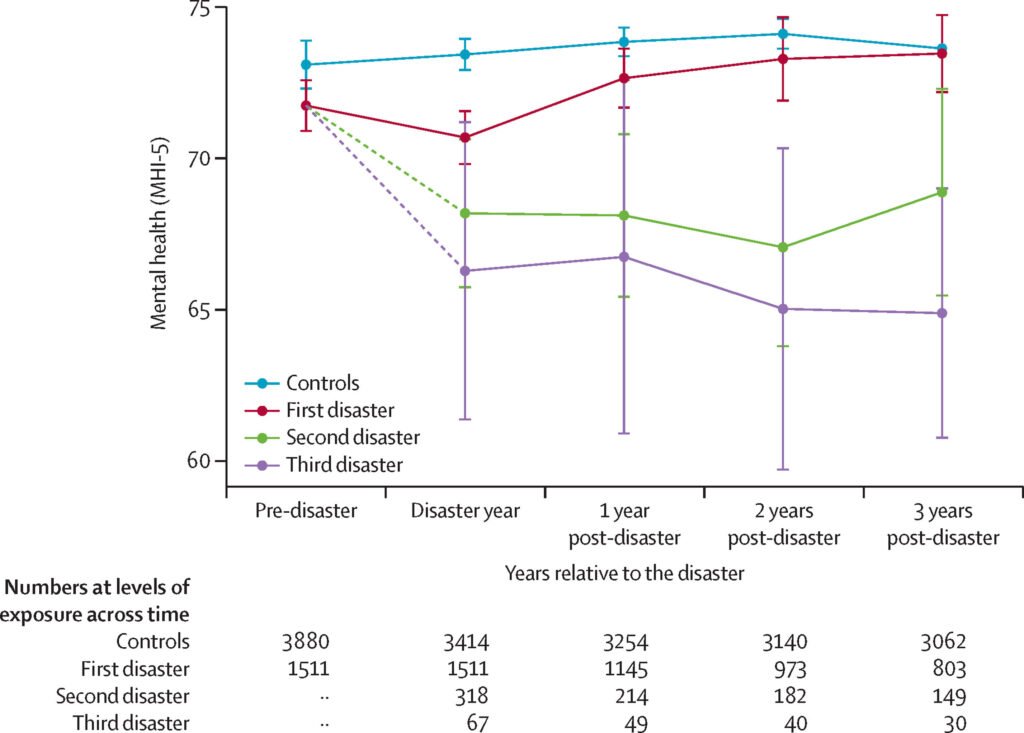A recent study conducted by the University of Melbourne has revealed that repeated exposure to climate disasters can have detrimental effects on mental health, leading to slower recovery times. The research, published in The Lancet Public Health, focused on individuals in Australia who have experienced multiple disasters such as floods, bushfires, or cyclones over the past decade.
The study found that mental health outcomes were significantly worse for individuals who had been exposed to multiple disasters within a short time frame, such as one or two years apart. This highlights the need for improved support systems for communities that are at risk of repeat disasters.
Dr. Claire Leppold, a Research Fellow at the University of Melbourne, emphasized the importance of understanding the long-term impacts of multiple disaster exposures. She noted that children born today are expected to experience seven times more disasters in their lifetimes compared to previous generations, making it crucial to enhance disaster recovery planning and support services.
The study recommended changes in how healthcare providers, such as general practitioners (GPs), screen for past disaster exposures and provide tailored support to individuals who have been affected by multiple disasters. It also called for emergency services to prioritize at-risk groups and consider the cumulative effects of past disasters in their planning processes.
Professor Lisa Gibbs, Director of the Disaster, Climate, and Adversity Unit at the University of Melbourne, underscored the importance of the study’s findings in informing policy changes and improving disaster planning efforts. She emphasized the need for a more comprehensive understanding of the public health impacts of multiple disaster exposures in a rapidly changing climate.
The study analyzed data from over 1,500 individuals who had experienced disasters and compared their mental health outcomes to a control group of 3,880 Australians with similar sociodemographic profiles. The findings shed light on the challenges faced by communities affected by multiple disasters and underscored the need for proactive measures to support their mental health and well-being.
Overall, the research highlights the urgent need for enhanced support systems and tailored interventions for individuals and communities facing repeated exposure to climate disasters. By addressing the mental health impacts of multiple disasters, policymakers, healthcare providers, and emergency services can better prepare for the challenges posed by a changing climate and ensure the resilience of communities in the face of future disasters.


